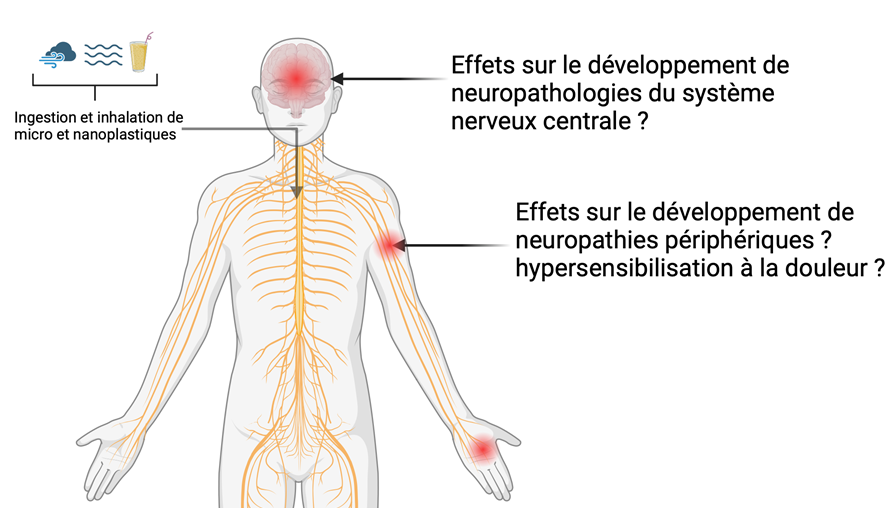Academy of Excellence "Territories, Environments, Risks and Resilience"
Psychiatric disorders and comorbidities caused by pollution in the Mediterranean area
Investigating anthropogenic pollutants and psychiatric disorders and comorbidities in the Mediterranean region in a bid to identify possible therapeutic avenues.

Academy 3 highlight
The PsyCoMed project, which proposes to assess the health effects of micro and nanoplastics on human health, falls under the theme “Assessing and sensing anthropogenic hazards to human health, environments and global changes.” PsyCoMed brings together neuroscientists, chemists and environmental toxicologists from Université Côte d’Azur laboratories.
The project
It is essential to characterize the impact of environmental plastic pollution on the human body, as it has been shown that the inflammation resulting from pollution can act on the central nervous system, causing psychiatric illness and comorbid chronic pain.
The +
This project examines the effects of plastic pollution and plasticizer additives on mental health at a time when such pollution is taking on considerable proportions in the Mediterranean sea. Knowledge of the neurological mechanisms involved in the harmful effects of these pollutants should help limit their effects and inform public decision-makers about the risks.
What’s next?
The research partners of this project are SMEs that use naturally occurring substances with anti-inflammatory properties to reduce the toxic effects of environmental pollutants. We will test these natural substances on preclinical models to assess their positive effects on the neurological disorders induced by nanoplastic particles and exposure to plasticizer additives.
Project information
|
Scientific domain
Environmental and Human Health, Neuro-toxicology, Chemistry |
Key words Pollutants Nanoplastics Neurological disorders Neuroinflammation Mediterranean |
|
Total budget
€110,000, including €22,000 from Academy 3
|
Students involved
Arthur Prestinari (Master) |
| Partners IPMC – Université Côte d’Azur, CNRS, Inserm ICN - Université Côte d’Azur, CNRS TIRO-MATOs – Université Côte d’Azur, CEA International collaborations Université de Bordeaux Universita ta Malta - Malta Consiglio Nazionale Delle Ricerche - Italy Uniwersytet Jagiellonski - Poland Universitat Jaume I de Castellon - Spain Universite de Tunis El Manar – Tunisia Alexandria University – Egypt Université de Saint Esprit-Kaslik - Lebanon The Florey Institute of Neuroscience and Mental Health - Australia Université Cadi Ayyad – Morocco Flanat Research Italia SRL - Italy Laboratoire WATCHFROG - France Benephyt - France |
Project members Jacques Noël Carole Rovere |

Jacques Noël
IPMC – Université Côte d’Azur, CNRS, Inserm

Carole Rovere
IPMC – Université Côte d’Azur, CNRS, Inserm

















